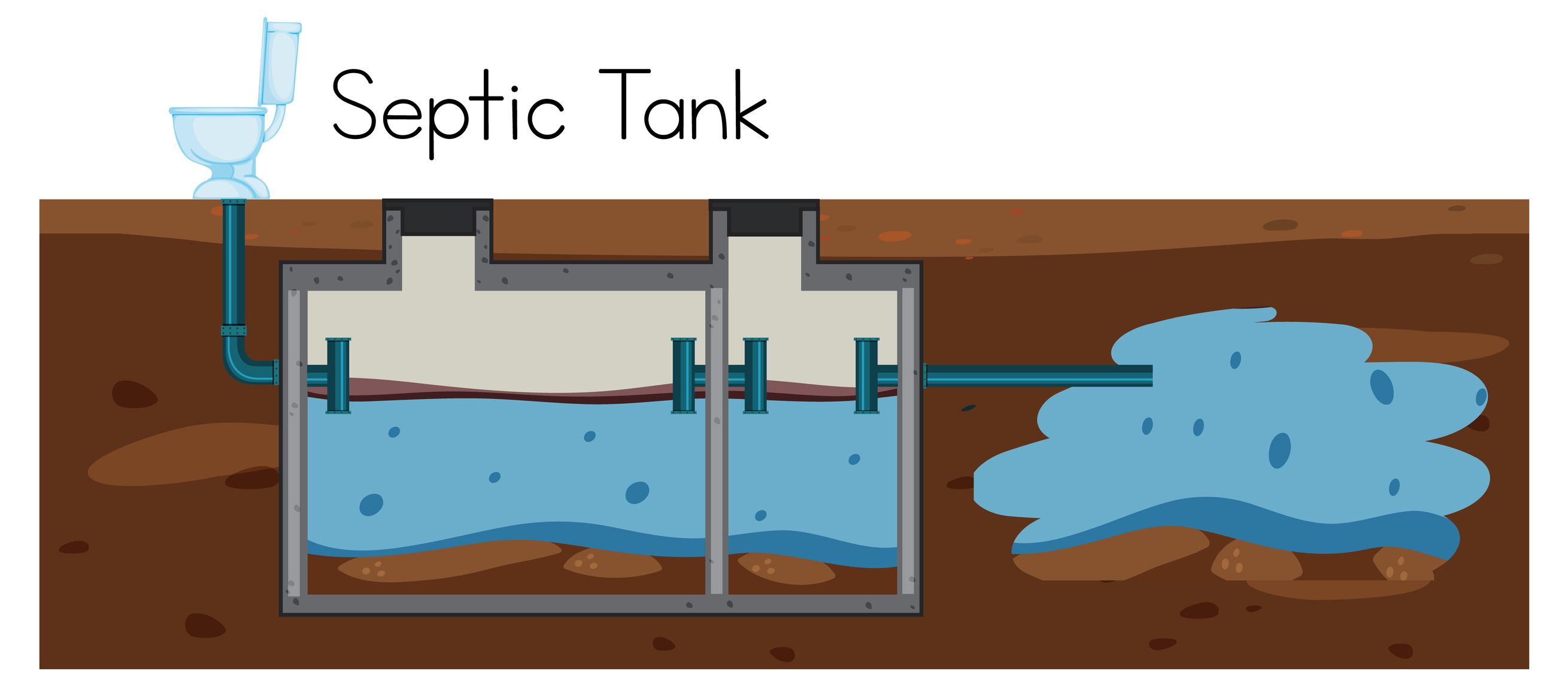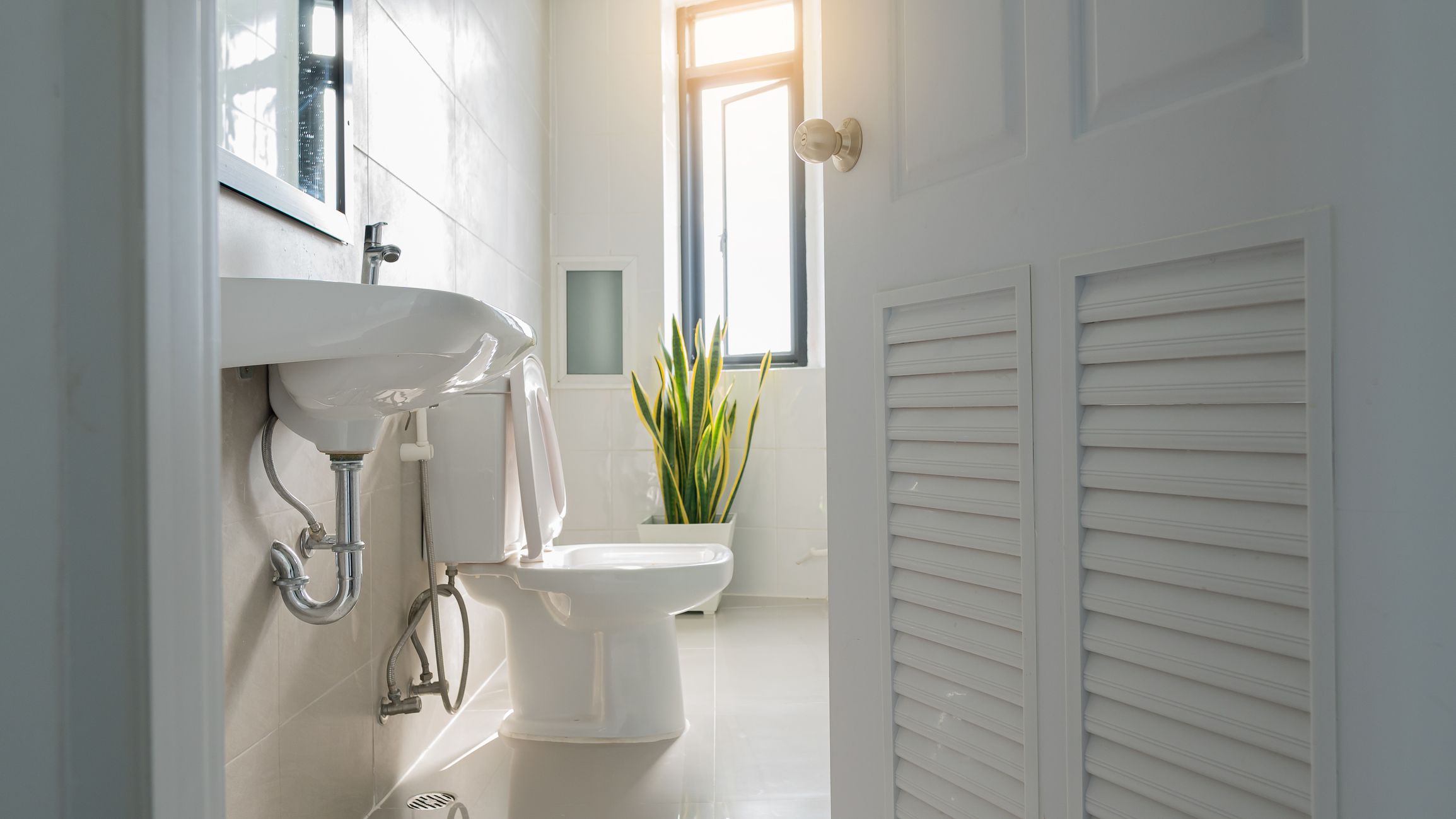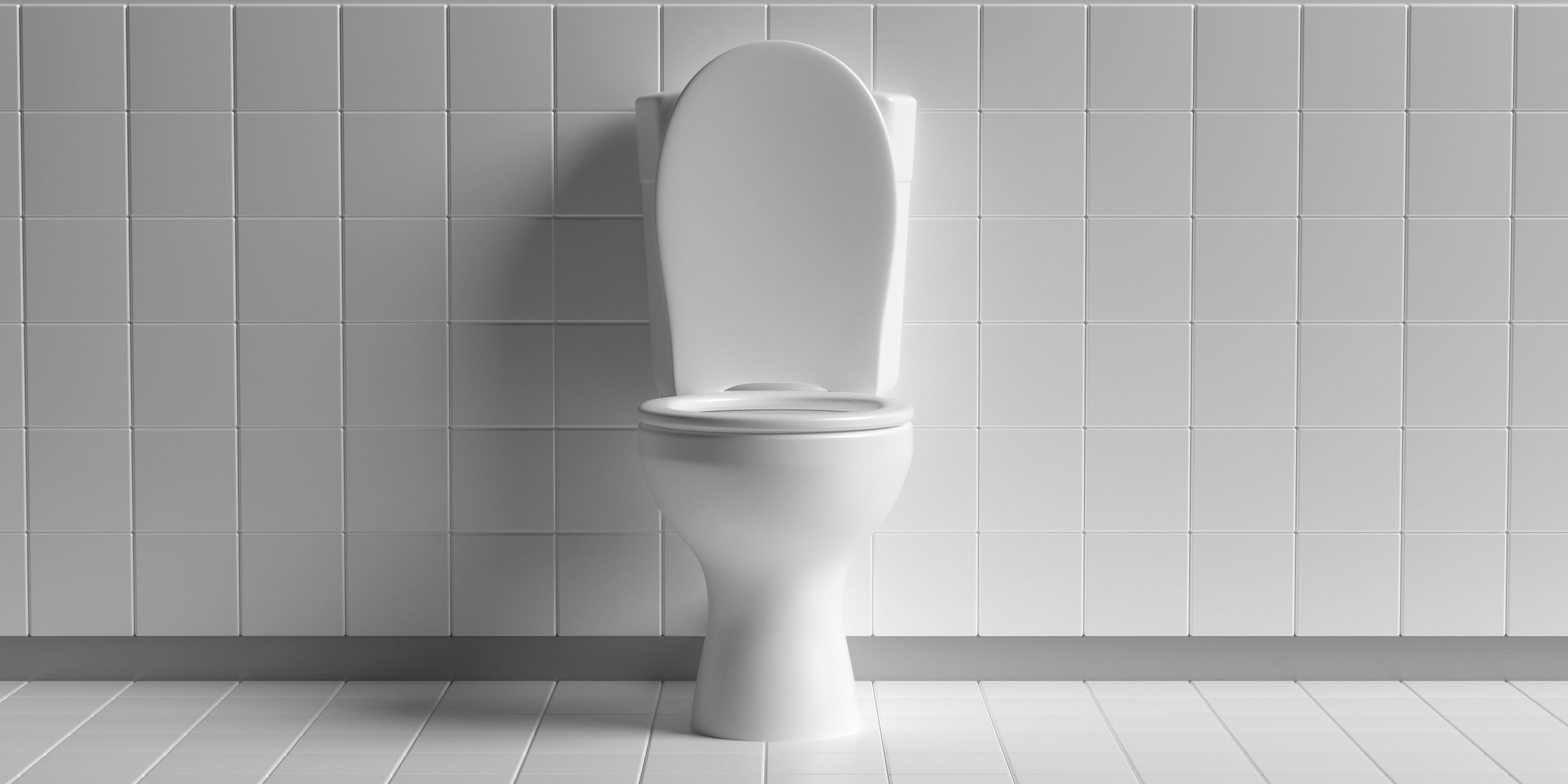CLEANING TIPS
How to Choose Septic Safe Toilet Cleaner
Published: December 19, 2023
Updated: August 1, 2025


A septic wastewater treatment system is what most people turn to if they aren't within the city limits of a municipal sewage system. If you do fall into the camp of having your own septic wastewater treatment system, you have to be especially particular about what goes down your drain whether that's from your sink or your toilet.
What does "septic safe" mean?
The term "septic safe" refers to products designed and formulated to be compatible with septic systems. Septic systems are onsite wastewater treatment systems commonly used in areas without access to a centralized sewer system. These systems rely on a delicate balance of bacteria and natural processes to treat and dispose of household wastewater.
When a product is labeled as "septic safe," it means that it has been formulated to minimize any adverse effects on the functioning of a septic system. These products are typically chosen or developed with consideration for the unique conditions within a septic tank and the overall septic system.

Are septic systems more environmentally friendly?
When done right and maintained correctly, yes! Septic systems can be considered more environmentally friendly for several reasons. They utilize natural treatment processes, relying on bacteria to break down organic matter in the septic tank and the soil in the drain field to filter and treat effluent. This decentralized treatment minimizes the need for extensive energy-intensive processes associated with centralized sewage treatment plants. Septic systems operate passively, reducing overall energy consumption. Additionally, the localized treatment of wastewater eliminates the environmental impact of transporting sewage over long distances.
However, their environmental friendliness depends on proper maintenance, responsible chemical use, and adherence to regulations to prevent contamination of groundwater and nearby water bodies. In summary, septic systems can be eco-friendly when well-maintained and used responsibly, providing a decentralized and natural approach to wastewater treatment.

What should you avoid using if you have a septic tank?
Maintaining a septic system requires a thoughtful approach to household choices, including the products we use daily. To ensure the longevity and efficiency of your septic system, it's essential to choose septic-safe products.
The average household relies on a variety of products that eventually find their way into the septic tank. Substances like harsh chemicals, antibacterial agents, and non-biodegradable materials can disrupt the natural processes that occur within the septic system. Over time, these disruptions can lead to system failures, expensive repairs, and environmental contamination. Whether you’re wondering how to remove toilet bowl rings or doing a routine clean, here's what you should avoid:
-
Harsh Chemicals: Harsh chemicals found in some cleaning agents can harm the beneficial bacteria in your septic tank. Opt for natural or mild toilet bowl cleaners without harsh chemicals that won't disrupt the delicate balance within the system.
-
Low Phosphate Content: Phosphates, commonly found in some detergents and cleaners, can contribute to algae growth and lead to issues in the drain field. Septic-safe products often have low or no phosphate content.
-
Antibacterial Agents: While antibacterial products are popular for personal care and cleaning, septic-safe products are often free from antibacterial agents. Antibacterial substances can affect the bacterial balance in the septic tank, potentially hindering the treatment process.
-
Disinfectants: Excessive use of disinfectants like chlorine bleach, pine oil, and phenolic compounds can harm the beneficial bacteria in your septic system, which are crucial for breaking down waste. To avoid damaging the system, use these disinfectants in moderation and follow the instructions, or opt for bleach alternatives for toilet cleaning.
-
Petroleum-Based Products: Petroleum-based products can create a layer that inhibits the natural breakdown of waste in your septic tank. Opt for products made from natural, plant-based ingredients instead.
-
Methylisothiazolinone: Methylisothiazolinone is a preservative used in cleaning products to prevent bacterial growth, but it’s toxic to aquatic life and can irritate skin and respiratory systems. It can also disrupt the beneficial bacteria in your septic tank, so it's best to avoid products containing this chemical.

Septic Safe Cleaning Products
Still wondering what toilet bowl cleaner is safe for septic tanks? Here's what to look for when choosing a septic-safe cleaning product:
-
Biodegradability: Septic-safe products are designed to break down easily, reducing the risk of clogs and helping to maintain the proper functioning of the septic system. Biodegradable substances are broken down by bacteria into simpler, environmentally friendly components.
-
Septic-Safe Labeling: Some manufacturers specifically label their products as "septic-safe" or "septic-friendly." These labels indicate that the product has been tested and found to be compatible with septic systems. Look for these designations on cleaning products, personal care items, and other household goods.
-
Green Ingredients: Look for cleaners made with plant-based ingredients that avoid petroleum-derived chemicals. Products that carry third-party certifications like the EPA’s Safer Choice designation ensure that the ingredients are safer for both your septic system and the environment. These products break down naturally and won’t disrupt the microbial balance in your septic tank.
-
Natural Ingredients: Look for cleaning products that use natural ingredients such as distilled white vinegar, baking soda, lemon juice, and Epsom salt. These options are gentle on your septic system and can effectively clean and disinfect your home without harming the beneficial bacteria in your septic tank.

Extra Tips to Keep Your Septic System Healthy
To keep your septic system running smoothly, regular care and attention are essential. Here are some important tips to help maintain a healthy and efficient system:
-
Check Toilet Paper Compatibility: Even toilet paper choices can affect your septic system. Choose toilet paper that is labeled as septic-safe or easily breaks down to prevent unnecessary strain on your system.
-
Keep Up With Routine Maintenance: Be sure to regularly inspect your septic system to identify any issues early. Schedule pumping every 3-5 years, and address cracks or leaks immediately to prevent costly repairs. If you notice sewage odors, it's a sign that something’s wrong and needs prompt attention.
Keep Your Septic System in Top Shape with Blueland
Maintaining a healthy septic system is essential for both your home and the environment. Choosing septic-safe products and keeping up with regular maintenance helps your system run smoothly for the long haul.
For an easy switch, try eco-friendly cleaning products—like Blueland’s toilet cleaning collection—that support your septic system while keeping your home clean and the planet healthier.
Frequenctly Asked Questions About Septic Safe Cleaners
Can I use regular household cleaning products with a septic system?
While many regular cleaning products can be used, it's advisable to choose septic-safe options. Look for products labeled as biodegradable, phosphate-free, and without harsh chemicals to maintain a healthy septic environment.
Are antibacterial soaps and cleaners safe for septic systems?
Antibacterial products can disrupt the natural balance of bacteria in a septic tank. It's recommended to use alternatives without antibacterial agents to preserve the effectiveness of the septic system.
Is it okay to flush non-biodegradable items down the toilet with a septic system?
No, it's crucial to avoid flushing non-biodegradable items such as wipes, sanitary products, and other materials down the toilet. These can lead to clogs and system failures.
What type of toilet paper is safe for septic systems?
Toilet paper labeled as septic-safe or easily biodegradable is preferable. These break down more readily in the septic tank, reducing the risk of clogs.
Can I use bleach in my laundry with a septic system?
While small amounts of bleach are generally acceptable, excessive use can harm the beneficial bacteria in the septic tank. Use bleach sparingly and consider alternatives like oxygen bleach.
Do I need to add septic system additives?
In most cases, septic systems do not require additives. Regular pumping, responsible water usage, and septic-safe product choices are usually sufficient for maintaining a healthy system. Additives should only be used under professional guidance.
Remember that specific recommendations may vary based on the type of septic system and local regulations, so it's always a good idea to consult with a septic system professional for personalized advice.
Are Blueland’s Toilet Cleaning Tablets safe for septic systems?
Yes! Blueland Toilet Bowl Cleaner tablets are septic-safe! These tablets are 100% bio-based and made without chlorine bleach, hydrochloric acid or cetrimonium chloride (CTAC). But how effective is Blueland’s toilet cleaner? Learn more about this method and how to clean your toilet.
Sources:
-
Environmental Protection Agency. Frequent Questions on Septic Systems.
-
Environmental Protection Agency. Septic System Impacts on Water Sources.
-
Journal of Environmental Health. Septic System Cleaners: A Significant Threat to Groundwater Quality.
Tags
Featured Products
Loading...

